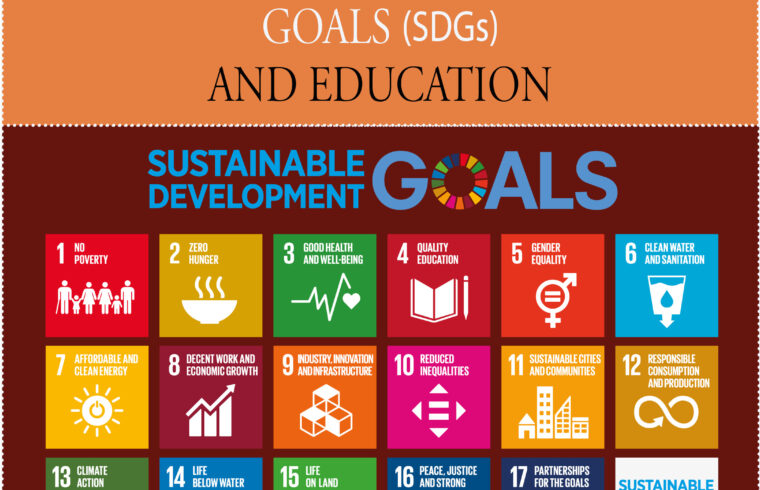Rosa Cañadell
Degree in Psychology. Professor. Columnist – CATALONIA
The United Nations (UN) defines the 2030 Agenda for Sustainable Development as „an action plan for people, planet and prosperity, which also aims to strengthen universal peace and access to justice“. The UN General Assembly – composed of Member states– approved unanimously this plan in 2015, which contains the 17 Sustainable Development Goals (SDGs).
These goals include the eradication of poverty, the end of hunger, the promotion of health and well-being, education of quality, gender equality, access to safe drinking water and sanitation, access to affordable and clean energy, and the promotion of inclusive economic growth.
One of the key goals of the SDGs and the 2030 Agenda is to engage new generations in sustainable development. We always say that young people are the future. And, unquestionably, the children of today will play a decisive role in designing the world we will inhabit tomorrow.
All these statements would be a good move forward to confront the great inequality, poverty and wars in today’s society, as well as to combat climate change and its consequences. Nevertheless, the very same governments that committed themselves to these objectives are the ones that maintain policies that go in precisely the opposite direction and that are, in many respects, totally contradictory. Therefore, goals which are completely necessary and desirable, become totally useless.
1. Contradictions
More industrial growth is proposed to reduce poverty, which implies more extraction, production and consumption, which is totally contrary to stopping global warming. What we need is less consumption and a greater distribution of wealth. What we need is less consumption and a better distribution of wealth.
It points to growth to reduce poverty. However, growth does not reduce poverty, but rather increases inequality, and inequality is the greatest source of poverty. They suggest no further regulation of banks or markets and refuse to call for debt cancellation, despite the fact that the debt is worth more than $700 billion a year to developing countries, money that could be spent on poverty reduction.
It is recognised that we are facing a climate emergency and that stopping global warming would require a 6% reduction in CO2 emissions from fossil fuels, but every year it is increasing by 1% instead of decreasing.
People talk about the need to save forests, but in the Amazon 17% of forests have already been lost and there is no talk of any measures to stop it.
It also proposed an increase in extensive agriculture, forgetting that this is one of the biggest emitters of CO2. Agro-exports also mean that some foodstuffs travel over 4,000 km from the farm to the fridge, we have to think about the energy involved in doing so.
New Technologies are used as a salvation, without mentioning the water and energy consumption they entail. It is estimated that two Data Centres alone consume the water consumed by 28,000 households. This is also the case with the socalled „energy transition„, with electric cars needing a large amount of minerals (lithium, cobalt, etc.) for their manufacture and their large batteries. These minerals are only found in some countries, where children are already dying in the mines, as in the Congo.
The „ecological injustice„, which tells us that we are not all equally accountable, is ignored. In fact, the richest 1% emit as much CO2 as two thirds of the poorest. So the richest 10 % emit 50 % and the poorest 50 % emit only 8 %.
All of this has negative consequences, especially for the poorest people, who are also the ones who suffer the most. Global warming reduces precipitation, and without rain there is no water, and without water there is no food.
It is proposed to strengthen the peace, but military budgets are being increased, weapons are being sent to continue the war in Ukraine and the countries with the most power are not capable of stopping genocide such as that which is happening in Palestine and in some African countries.
2. Goals in education
The SDGs agenda places great importance on education and argues that better education leads to an earlier exit from poverty. They also stress that education is the key to achieving the other goals: poverty reduction, peace and sustainability.
But in reality, very little progress has been made and in 2018 there were still 260 million children (mostly girls) out of school. More than half of the world’s children are not meeting the literacy and numeracy standards, and if th2ings continue as they are now, by 2030 there will be 84 million children out of school and 300 million without the basic skills to thrive.
It is obvious, and we all agree on this, that education is basic, the problem is: In a world of constant war and cruel genocide in Palestine, how are we to educate for peace? How can we hope that our students will learn to resolve their conflicts without violence if the world tells them that violence is what resolves conflicts.
How can we educate to stop climate change if there is no action against the corporations and the richest people who are causing the environmental disaster? We cannot mislead our students by telling them that if they consume less water and throw plastics in the recycling bin they will stop global warming.
How can we educate for equality and cooperation if those in power do not eradicate inequality? How to educate about gender equality and against gender violence, if the right-wing parties (increasingly in the majority) deny it, if the social networks are full of sexist videos and messages and children watch pornography from the age of 8?
3. What to do?
What can education do in such a situation? What are the consequences of education? How can we encourage ideals and attitudes in our young people that can help achieve some of the goals outlined in the SDGs?
It is necessary to educate, organise, fight and provide an education in values. Because, as stated by Paulo Freire, „education cannot change the world, but it can change the people who will change the world“. We must fight privatisation, school segregation and lack of equal opportunities. We should fight to decrease arms budgets, which promote war, death, pain and destruction, and increase budgets for public education. And we should provide education that promotes peace, equality, non-discrimination, solidarity, indignation in the face of injustice and the conservation of nature.
To this end, it is necessary:
– Less screens and more teachers. Presential education allows socialisation, learning through interaction and teaching content that helps to understand the world and to improve it. Screens make it difficult to learn and acquire a critical spirit, and social networks increase isolation in our young people, isolation, dependence, rapid access to pornography and false information.
– To transmit knowledge that helps to understand how the world works and gives tools to be able to change it.
– Educating for peace, talking about the inhumanity of war and helping to prevent violence and discrimination. It is necessary to explain to them that wars are not fair, that they are always in the interests of a minority, but that the vast majority of those who have less money and less power always pay.
– Educate individual behaviour that implies respect for nature, reducing consumption, increasing recycling, and opting for a healthy and ecological diet. Make them aware that the world belongs to all of us and that if we do not take care of it, a future full of disasters awaits us. Infinite growth on a finite planet is quite impossible.
– To transmit values of solidarity, anti-racism, feminism, cooperation and indignation against all kinds of injustice and violence.
– To encourage involvement in society, participation in actions and organisations fighting for a better world and to put pressure on governments and companies.
4. In conclusion
It is important that boys and girls graduate from high school and university with the conviction that it is necessary to fight against all types of violence and that human rights must be defended, that they do not get used to the idea that wars and massacres are normal, that they do not become insensitive to the pain of others, that they are concerned about the destruction of the planet and its consequences, and that they are capable of becoming indignant in the face of injustice and violence. They should feel solidarity with people who suffer and want to get involved in stopping all types of aggression, wars and violence.
This should be the ethical mandate of all people involved in education. Because the goal is not to educate so that tomorrow, our students will „adapt“ as well as possible to an unjust, violent world, full of injustices and inequalities, but so that they will have information and knowledge that will allow them to understand how the world works and have the elements and the will to improve it.
This is the only way we can help meet the goals set by the SDGs” for a better future.











